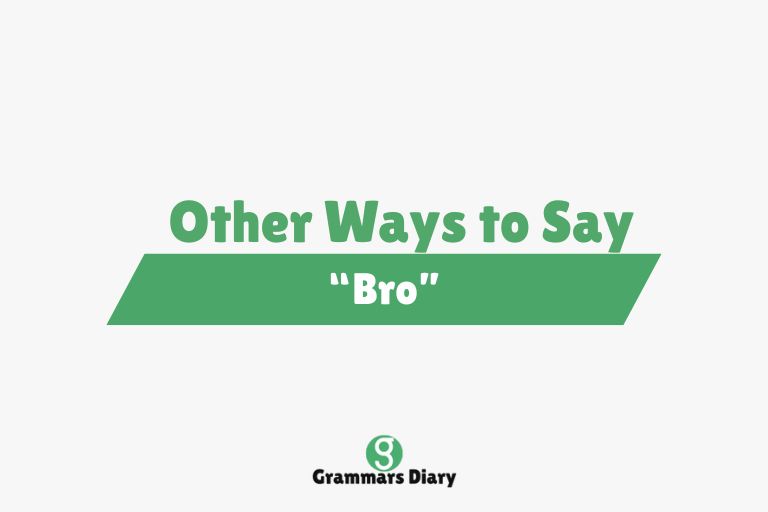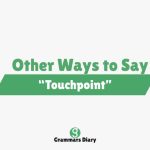“Bro” is a casual, familiar term often used between friends, especially among men, to signify camaraderie, closeness, or mutual respect. While “bro” has become a staple in everyday slang, relying solely on it can limit the richness of expression, especially in social settings where variety in language adds personality and nuance.
Whether you’re writing dialogue, chatting with friends, or crafting a relatable post online, having a wider vocabulary can help you express different moods, relationships, and tones with more clarity. This article explores 25 engaging, modern, and diverse alternatives to “bro” so you can match your language to the vibe you’re aiming for.
Other Ways to Say “Bro”
1. Dude
Example: “Dude, that game last night was insane.”
Meaning: A relaxed and widely accepted slang term for a male friend or acquaintance.
Usage: Highly common in casual conversation, this term works across a range of settings and age groups when trying to keep things informal and lighthearted.
2. Buddy
Example: “Hey buddy, need help with that?”
Meaning: Conveys friendliness and approachability.
Usage: Often used in both genuine and sometimes sarcastic tones, depending on the relationship and tone of voice.
3. Pal
Example: “Thanks for coming through, pal.”
Meaning: Slightly old-fashioned but warm and familiar.
Usage: Works well in friendly exchanges or when trying to evoke a sense of classic, easygoing rapport.
4. Homie
Example: “What’s up, homie?”
Meaning: Originating from urban slang, this term reflects deep-rooted friendship and loyalty.
Usage: Common in urban and hip-hop-influenced cultures, homie often indicates someone from your neighborhood or close inner circle.
5. Fam
Example: “You’re always welcome here, fam.”
Meaning: Short for “family,” used to describe someone as close as kin.
Usage: Often used in digital spaces to express tight-knit bonds, even among non-relatives.
6. Brotha
Example: “Much love, brotha.”
Meaning: A stylized version of “brother,” emphasizing solidarity.
Usage: Can carry a deeper emotional or cultural significance, depending on the context and speaker.
7. Man
Example: “Man, I can’t believe that just happened.”
Meaning: Used as an exclamation or to refer to someone in a casual, familiar way.
Usage: Universal and adaptable, this one slips easily into most informal conversations.
8. Bruh
Example: “Bruh, no way you just did that.”
Meaning: A more expressive, internet-driven version of “bro.”
Usage: Frequently used in memes and online humor to express disbelief, sarcasm, or dramatic emphasis.
9. G
Example: “Appreciate that, G.”
Meaning: Short for “gangster,” though now broadly used to convey respect or admiration.
Usage: Common in hip-hop circles and among younger crowds, this term often indicates someone who’s dependable or cool under pressure.
10. Boi
Example: “Boi, you trippin’.”
Meaning: A playful or humorous twist on “boy,” often used to mock or exaggerate.
Usage: Internet slang that works well in memes and lighthearted banter.
11. Ace
Example: “You handled that like a pro, ace.”
Meaning: A term of high regard, suggesting skill and reliability.
Usage: Less common but impactful, especially when you want to sound both affectionate and respectful.
12. Chief
Example: “What’s the plan, chief?”
Meaning: Often implies leadership or authority in a friendly way.
Usage: Works as either genuine praise or sarcastic playfulness, depending on tone.
13. Big Man
Example: “Alright, big man, you got this.”
Meaning: A term of either affection or mild teasing, depending on delivery.
Usage: Can be encouraging or ironic—context matters here.
14. Champ
Example: “You nailed it, champ.”
Meaning: Often used to encourage or uplift, especially after a success.
Usage: Positive and energizing, works great when celebrating small wins or boosting morale.
15. King
Example: “You deserve better, king.”
Meaning: A respectful and empowering term that uplifts the listener.
Usage: Popular in online communities promoting self-worth and affirmation, especially among men.
16. Playa
Example: “Alright, playa, let’s see what you’ve got.”
Meaning: A laid-back term usually used to describe someone who’s smooth, confident, or charismatic.
Usage: Popular in casual or humorous contexts, especially among friends who like to joke around.
17. Boyo
Example: “Easy there, boyo.”
Meaning: A colloquial expression from Irish or British English, meaning “lad” or “young man.”
Usage: Adds a regional or nostalgic tone to conversation; perfect for stylized or playful dialogue.
18. Soldier
Example: “You’ve been through a lot, soldier.”
Meaning: Used metaphorically to describe someone strong, loyal, or dependable.
Usage: Works well when expressing admiration or solidarity, especially after challenges or adversity.
19. Hoss
Example: “What’s up, hoss?”
Meaning: A Southern American slang term that implies strength and size, often used as a compliment.
Usage: Ideal for creating a friendly, down-to-earth, or country-style tone.
20. Skipper
Example: “Lead the way, skipper.”
Meaning: Suggests leadership or command in a fun, affectionate way.
Usage: Often used jokingly to refer to someone who’s taken charge or thinks they’re in charge.
21. Captain
Example: “Nice job, captain.”
Meaning: Like “skipper,” but slightly more formal; implies respect and acknowledgment of authority.
Usage: Great for teasing or supporting someone taking initiative.
22. Rider
Example: “You’re my day-one rider.”
Meaning: Short for “ride or die,” this term reflects fierce loyalty.
Usage: Best used to emphasize long-term friendship and mutual support.
23. Dawg
Example: “Yo dawg, you serious?”
Meaning: A popular term of friendship from hip-hop culture, often associated with loyalty and trust.
Usage: Common in urban slang, and useful for laid-back, high-energy dialogue.
24. My Guy
Example: “My guy! You crushed it today.”
Meaning: A supportive and enthusiastic way to address a friend.
Usage: Modern and upbeat, it’s become a trendy and affirming expression, especially online.
25. Legend
Example: “You got me tickets? You’re a legend.”
Meaning: A lighthearted compliment implying that the person has done something amazing or noteworthy.
Usage: Extremely popular in British and Australian English, but widely understood in internet culture as a fun and exaggerated form of praise.
When to Use Different “Bro” Alternatives
In Friendly Conversations
When you’re chatting with close friends or long-time companions, using terms like “dude,” “homie,” or “fam” can naturally reflect your relationship and maintain a tone of easygoing familiarity. Words like “champ” or “big man” also work well when you want to add humor or emotional support to the mix.
In Online or Social Media Contexts
Digital platforms have their own language trends, and terms like “bruh,” “king,” “my guy,” or “legend” are often used to hype up friends, react to viral content, or participate in internet humor. Using these expressions can help you stay on-trend and relatable while expressing admiration or disbelief.
In Joking or Playful Interactions
When you’re keeping things light, sarcastic, or a little over-the-top, phrases like “skipper,” “boi,” or “hoss” add a humorous twist to everyday conversation. These expressions can exaggerate or mimic formality in a way that shows you’re having fun with language.
Conclusion
While “bro” remains a go-to favorite for expressing male friendship and camaraderie, switching it up with different alternatives allows for more expressive, humorous, and diverse communication. Each term comes with its own nuance, tone, and cultural vibe, giving you the flexibility to speak in a way that best fits your personality or the moment. Whether you’re building connection, cracking a joke, or hyping someone up, there’s a perfect substitute for “bro” waiting to be used.
FAQs
What does “bro” mean in slang?
“Bro” is a short form of “brother” and is used informally to address male friends or companions. It signifies friendship, solidarity, or casual camaraderie.
Can women use these alternatives too?
Absolutely. While many of these terms have traditionally been used by men, the informal and inclusive nature of modern slang means anyone can use them, regardless of gender.
Are all these alternatives suitable for texting?
Yes, many of these terms originated or gained popularity through texting, social media, and meme culture, making them ideal for informal digital communication.
Which alternative is the most respectful?
Terms like “king,” “legend,” and “my guy” tend to carry an uplifting or affirming tone, making them particularly respectful while still being casual.
Is it okay to use these terms in professional settings?
In most professional or formal environments, it’s best to avoid slang like “bro” or its alternatives. However, in informal work cultures or team chats, terms like “buddy” or “champ” might be acceptable depending on the tone and context.











